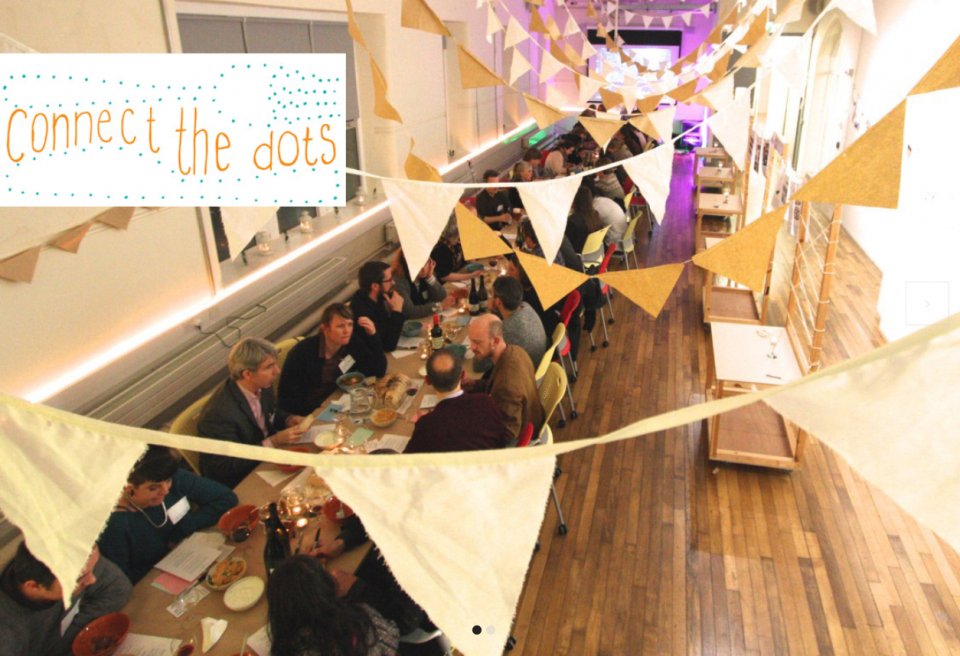
Encouraging collaboration by bringing together diverse perspectives on Dublin and its desired future.
The Project
The Goal
The project aimed to exchange knowledge between people who are experienced in using vacant or underused spaces in the city, and those who are not. In addition, the project aimed to collect data about groups who are interested in using vacant spaces.
Local Task Force
Connect the Dots were the lead team in the project. The participants were people already using, or interested in using, vacant spaces in the city. In addition, local authorities, the Office of Public Works and different agencies working with communities were part of the local task force.
The Process
Co-Lab was the idea to set up a network of people from diverse backgrounds where citizens and institutions could discuss and take action on projects that are beneficial to the city.
The initial concept, called "Connect the Dots" and developed by two students at the Dublin Institute of Technology, intended to set up a forum for vacant spaces and their uses. Co-lab supported the students with funds and played the role of observers. The project launched "Reusing Dublin", an online space to discover and share information about vacant or underused spaces in Dublin. Existing know-how with re-using spaces was shared in events, such as the launch event of "Reusing Dublin", where different users of vacant spaces gave short presentations about their experiences and challenges. Another event was a workshop that aimed to demonstrate the steps required to reuse vacant spaces. People who had already been successful at obtaining vacant space for community use were able to share their experience with others interested in doing the same. Click here to watch video.
Existing Dynamics
The project had a political aspect by questioning the scarcity of spaces in the city. It revealed the role of the National Assets Management Agency (NAMA) in the hierarchy of how space is being prioritised in the city with disregard to the cultural or social value of land.
Obstacles
As project observers, the role of Co-Lab did not allow it to intervene and change some organisational processes. In addition, some obstacles could have been dealt with if there had been better involvement with the institutions and more opportunities for cycles of reflection and action.
Resources
Co-Lab's role in this project was limited to the observation of "Connect the Dots", this required minimal human resources and funding. Nevertheless, skilled facilitators able to manage the different events as well as more institutional interest would have been of a greater benefit for the project.
Strokes of Luck
Observing and learning from other experiences and projects was a great opportunity for Co-lab to gather knowledge of what is required to manage and organise similar projects.
The Achievements
Short-term results
Apart from the knowledge accumulated by Co-Lab in its role as observers, many of the participants gained knowledge by learning from others.
Long-term benefts
The events allowed the building and strengthening of networks between groups who are engaged in the re-use of vacant spaces in Dublin, but it also raised awareness for the barriers to further action.
Key Lessons Learned
Johanna Varghese, Dublin City Council:
"The project showed that to strengthen networks, a more diverse participation from people as well as input from the local authority is required. In addition, skilled facilitation is needed in order to encourage authentic dialogue and shared decisions so that actions are understood and agreed jointly."
